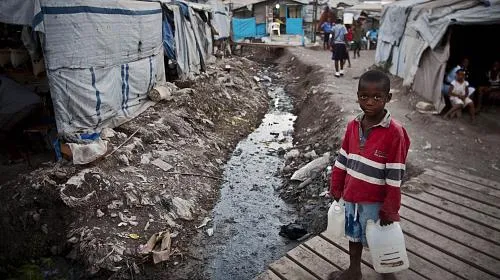WASHINGTON, D.C. (August 23, 2012) – U.S. Congressional staff members traveled with the global poverty-fighting organization CARE on a Learning Tour through Haiti to focus on progress – as well as the economic and social challenges that remain – more than two and a half years after a massive earthquake devastated the country.
In particular, the diverse delegation from Florida, South Carolina, Alabama, Louisiana and New York examined how U.S. foreign assistance programs and recovery efforts centered on economic security, health and gender have helped Haitian families rebuild and strengthen their communities.
The group visited CARE, USAID and U.S. investment projects that highlighted promising practices and cost-saving solutions. The group also met with high-level government officials, women parliamentarians and Haiti’s First Lady and former CARE staff member Sophia Martelly.
The trip staff members included:
- Viviana Bovo, Sen. Marco Rubio (R-FL)
- Cesar Gonzalez, Rep. Mario Diaz-Balart (R-FL)
- Alice James, Sen. Lindsey Graham (R-SC)
- Andrew Newton, Sen. Richard Shelby (R-AL)
- LaVerne Saulny, Sen. Mary Landrieu (D-LA)
- Meghan Taira, Sen. Charles Schumer (D-NY)
The four-day Learning Tour allowed participants involved in U.S. policy to experience firsthand how critical U.S. investments are making a difference. In addition, participants gained an awareness of the challenges at the household, community and government levels.
During this trip designed for key congressional staffers, CARE focused exclusively on staff members dedicated to foreign policy and development work. Media from Reuters and Public Radio International’s The World also joined.
On January 12, 2010, a 7.0-magnitude earthquake killed hundreds of thousands of people and uprooted 1.6 million from their homes, exacerbating development challenges already facing Haiti, the poorest country in the western hemisphere.
Since the earthquake, the U.S. government has pledged more than $3 billion in humanitarian and recovery assistance. Today, Haiti continues to transition from the relief phase to longer-term development. The delegation explored a variety of innovative programs, traveling throughout the capital of Port-au-Prince, the earthquake’s epicenter in Léogâne and to Cap-Haïtien in northern Haiti.
The delegation saw how CARE’s pioneering Village Savings & Loan Associations (VSLAs) have changed the economic fabric of a community by enabling women and men to start their own income-generating activities. To date, 2,100 women and 300 men have come together in 86 separate VSLA groups.
The delegation also visited one of CARE’s neighborhood improvement programs, which was implemented immediately following the 2010 earthquake. In one year, 600 homeowners received basic information on safe construction practices and home improvement. In return, homeowners benefiting from the program are strongly encouraged to host families living in the camps for one year to support their transition out of the displacement camps.
The knowledge gained from this trip will help participants and CARE continue to advocate for support and funding for these initiatives in Haiti and throughout the developing world. For more information on CARE’s Learning Tours, visit www.care.org/get-involved/advocacy/learning-tours. CARE Learning Tours are funded by the Bill & Melinda Gates Foundation.
Media Contacts:
Washington, D.C.: Stephanie Chen, CARE, schen@care.org, +1-202-595-2824

